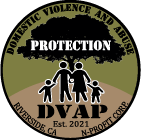Domestic abuse takes many forms, and one of its most insidious is financial or economic abuse. While physical and emotional abuse may be more visible, financial abuse often operates in the background, exerting control over a victim’s independence and ability to escape the cycle of abuse. By shedding light on this critical issue, we can empower survivors to identify economic control, reclaim their autonomy, and build a more secure future.
What Is Financial Abuse?
Financial abuse, also known as economic abuse, is a form of domestic violence in which an abuser uses money and financial systems to gain power and control over their partner. This might involve preventing access to bank accounts, sabotaging employment opportunities, or dictating every financial decision within a household. By creating financial dependence, abusers ensure their victims feel trapped and unable to leave the relationship. This type of abuse erodes confidence, limits choices, and often forces survivors to prioritize basic survival over long-term safety and independence.
Common Signs of Economic Control
Financial abuse can manifest in various ways, and it often begins subtly before escalating. Here are some common signs to watch for:
- Restricted Access to Money – An abuser might limit access to bank accounts, credit cards, or cash, leaving the victim with no financial resources of their own.
- Control Over Employment – This can include preventing the victim from seeking a job, sabotaging existing work opportunities, or demanding all earnings be handed over to the abuser.
- Debt Misuse – Some abusers may take out loans or credit cards in the victim’s name without permission, leaving them with overwhelming debt and damaged credit.
- Strict Financial Monitoring – Abusers might demand receipts for every purchase, track expenditures excessively, or criticize spending to maintain control.
- Denial of Financial Independence – This includes forbidding the victim from making any financial decisions, whether minor or significant.
Recognizing these behaviors is a crucial first step toward addressing the issue and regaining autonomy.
Steps Toward Financial Independence
Breaking free from financial abuse is an empowering and life-changing process, but it requires careful planning and support. Here are practical steps survivors can take:
- Secure Important Documents – Keep personal identification, financial records, and bank information in a safe and accessible place.
- Open a Separate Bank Account – Consider opening an account in your name to establish financial independence and begin rebuilding savings.
- Seek Employment or Training – Pursue opportunities for work or further education that can provide financial security and a sense of independence.
- Create a Safety Plan – Work with domestic abuse advocacy organizations to develop a plan that prioritizes safety while addressing economic challenges.
- Build a Support Network – Trusted friends, family members, and professionals can provide moral and practical support.
Empowering yourself financially can be a gradual process, but with determination and the right resources, survivors can take back control of their lives.
Community Resources and Support
There are organizations and tools dedicated to helping survivors of domestic violence, including those facing financial abuse. Local shelters, financial literacy programs, and legal aid resources can provide vital assistance. Additionally, reaching out to domestic violence hotlines or advocacy groups can connect survivors to confidential support and advice tailored to their circumstances. Remember—you are not alone, and help is available.
Moving Forward with Hope and Resilience
Recovering from financial abuse is a challenge, but it is also a testament to courage and resilience. By recognizing the signs, seeking support, and taking action, survivors can overcome the economic control that has held them back. Every step taken toward regaining autonomy paves the way for a life that is safer, healthier, and full of possibility.
Are You Experiencing Domestic Violence or Abuse? DVAP Is Here to Help
Domestic Violence and Abuse Protection, Inc. is a non-profit organization committed to protecting victims of domestic abuse. When restraining orders are not enough, we are here to provide the determined protection you deserve. Visit us at 3900 Orange St., Riverside, CA. Call us 24/7 at (951)-275-8301, or email us at admin@dvapriverside.org for confidential assistance and resources.






